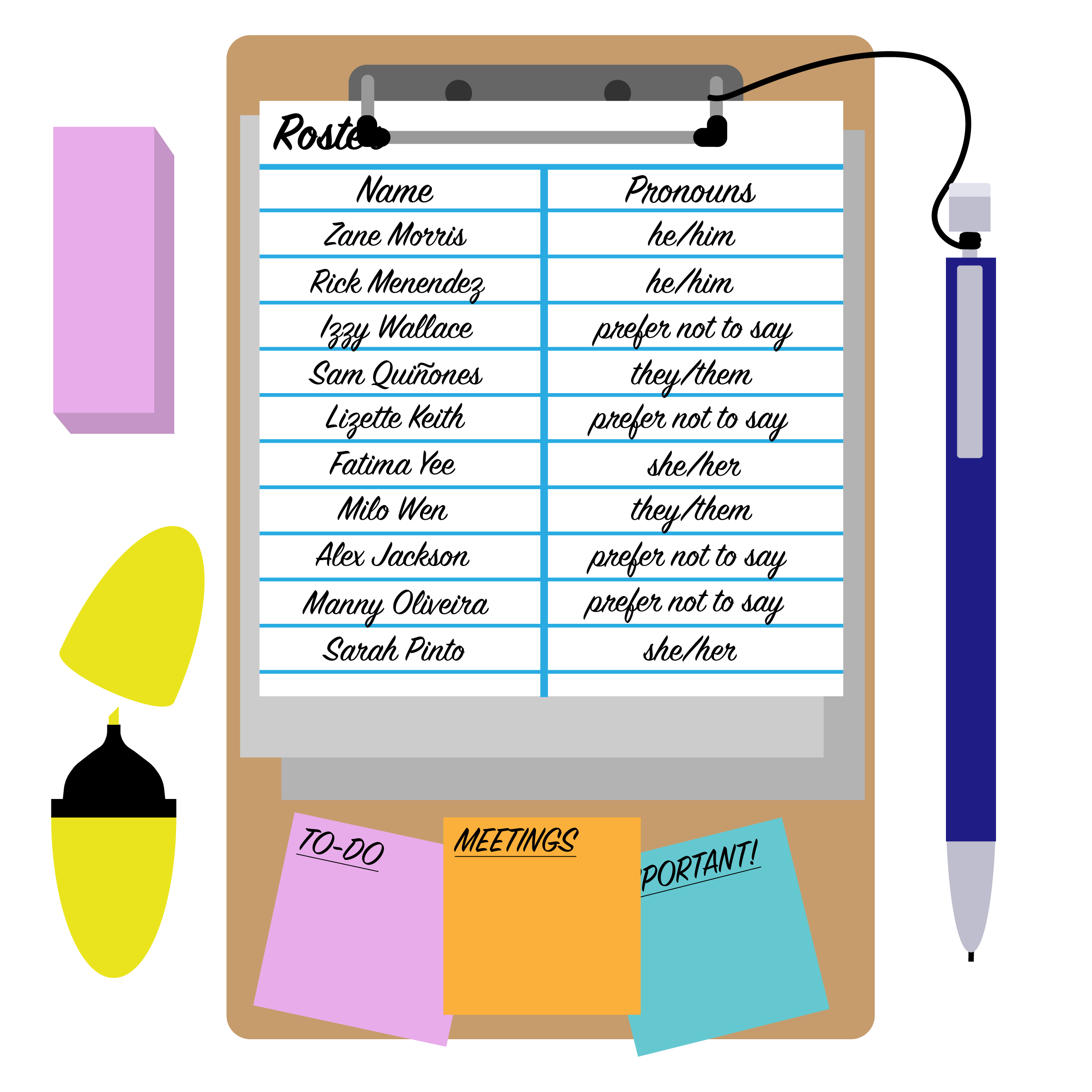Often, students get to college and embrace parts of themselves that they could not at home – one of them is gender identity.
When the world lived on Zoom, it was easy to type in your pronouns next to your name that showed on the screen at your own discretion. Now that GW is back to in-person operations, students lack a simple way to inform others of their pronouns. To fix this, officials should provide students the option to specify their preferred pronouns next to their name in a school-wide system like GWeb while maintaining control of when or with whom they share their gender identity.
Gender identity is complicated and unique to every person, granting student’s control over their pronouns essential. Many students use pronouns like they/them or ze/zir that do not fall into the gender binary. Other students may use pronouns that do not pertain to the stereotypical gender expression that society is used to following. Just because someone presents as female does not mean they use she/her pronouns – any person can dress, sound and look however they like and it does not dictate their gender or pronouns.
Respecting pronouns is quite literally life-saving. A survey conducted by the Trevor Project found that trans youth are less likely to attempt suicide when their pronouns are respected and they have the option to change their legal names, although more than 60 percent of trans and non-binary youth reported that the people they lived with did not respect their pronouns.

Nicholas Anastacio | Graphics Editor
But the system must keep pronouns hidden from students’ guardian figures who may have access to their GW-related accounts. Parents might not be supportive, and they could create a dangerous home life for students by cutting them off financially, refusing to use preferred names and pronouns or interfering in a medical transition. Allowing students to keep their pronouns private at home will help them stay safe.
Participating in this system needs to be completely optional. Although acknowledging pronouns is important, no student should be forced to disclose theirs. Sharing pronouns may put non-cisgender students in a difficult position if they are not sure which pronouns they are comfortable with or they do not want to out themselves.
This system also needs to give students the opportunity to change their pronouns whenever they would like. Gender is fluid and exists on a spectrum. When your gender identity falls outside of the cisgender category, that often includes a long journey that may change. Students’ gender identity is likely to look different over the course of their lives since they are beginning a phase where they can truly begin to explore who they are.
Along the same lines, GW should accept multiple sets of pronouns. Some students use more than one set of pronouns, like both she/her and they/them, while others identify with all of the different forms of gender-neutral pronouns. We are not limited to one set of pronouns and the University needs to allow students to reflect that.
Part of the University’s responsibility to respect students’ pronouns is making sure faculty are trained to do so. Professors must know how to use gender-neutral pronouns, correct themselves and others when misgendering occurs and not assume the pronouns of their students. When professors use a student’s correct pronouns in class, peers can follow and create a safe environment for students.
To prevent students from needing to share pronouns in class if they are not comfortable doing so, or to avoid the uncomfortable situation of needing to correct a professor who uses the wrong pronouns, students should be able to add their preferred pronouns to Blackboard. That way, professors can see them ahead of time. Students should also have the choice to have their pronouns displayed on their GWorld card.
GW would not be the first university to enact such a system. Harvard University gives students name placards, on which they can specify their pronouns, that they carry from class to class, to prevent professors from misgendering their students. Likewise, New York University lets students put their pronouns in the system that creates class rosters and seating arrangements.
Allowing students to add their pronouns to their GW-related accounts can alleviate much of the suffering that gender nonconforming students go through. The fact that we have to explain our existence to others is difficult and oftentimes disheartening. An official pronoun sharing process with inclusive training could eliminate the labor of explaining one’s gender identity and the indignity of being misgendered.
It is time for the University to facilitate pronoun sharing under the discretion of students themselves. Only the person sharing their pronouns truly knows their situation the best. It should not be up to the school to share students’ pronouns due to dangerous home situations or lack of comfortability with gender identity. But, GW has the ability to create an effective, safe and optional system for students that do depend on the sharing of their pronouns to avoid being misgendered. An optional system to disclose pronouns is needed to let students have control over their own gender identity journey.
Riley Goodfellow, a freshman majoring in political science, is an opinions writer.

